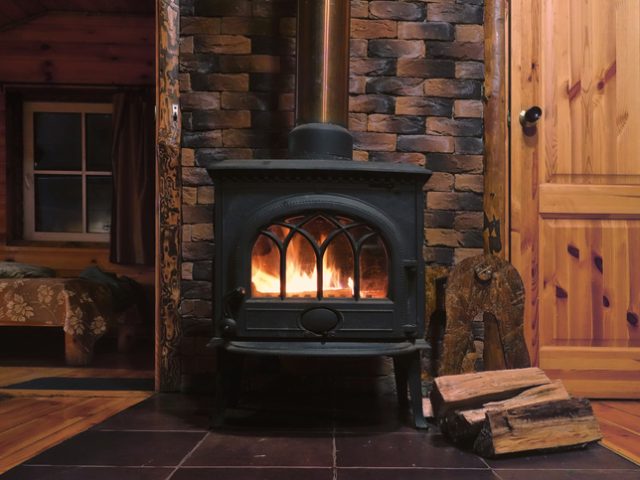While the German government prevaricates around its self-imposed energy crisis, citizens are taking matters into their own hands to keep themselves warm this coming winter with sales of cheap, reliable wood burners soaring in Europe.
After years of being warned from abroad — not least by U.S. President Donald Trump — against relying on a belligerent Russia for a great proportion of their domestic energy, the hammer has dropped for Germany with Russia turning off the taps of natural gas supply.
Seeing their Red-led ‘traffic light’ coalition government paralysed by divisions in the environmentalist Greens and the pro-business Yellows, many Germans are taking matters into their own hands by falling back on traditional, decentralised heat sources.
But, reduced to the status of a niche source of energy for predominantly rural communities, supplies of new furnaces and wood to power them has failed to keep up with demand.
Indeed, demand for wood-burning stoves “exploded” in Germany after Russia invaded Ukraine, a spokesman for a German association of heating installers said. In further comments reported by the Frankfurter Allgemeine, there has been a comparable surge in purchases of firewood in the same period, so says the head of the Federal Firewood Association.
The rush on wood-burning appliances is so pronounced the waiting time for some is a year, with no hope of delivery for this winter. While wood burners are made in Germany, there are shortages of individual components and materials, including parts that come from Communist China.
This shortage of stoves is extending across the whole of Europe, the spokesman said.
There has been so much demand for firewood in the past months that it is effectively sold out in Germany. As the FA article notes, there is no shortage of actual trees in Germany but air-drying cut wood so it is suitable for home burning takes two years naturally. The process can be sped up with forced air, but this uses increasingly expensive electricity to power fans, pushing up the price — and there aren’t enough businesses doing this to keep up with demand anyway.
Firewood Association spokesman Gerd Müller said of the shortage: “It’s almost impossible to get dry firewood this year”. Bulk pelletised burning wood used in automated burners has doubled in price in a year, the report states. Nevertheless, it is still cheaper than burning natural gas, which has soared in price to a-historical levels due to Russia’s war in Ukraine and been exacerbated by a lack of forethought and contingency planning by governments depending on such resources.
The news that wood burner and dried timber sales are soaring to the point of the market being exhausted by demand is likely to set alarm bells ringing among the environmentalist establishment that rules Germany and the rest of the European Union, however.
Simple home stoves have been in the sights of green activists for years, and some governments are even moving to ban or heavily restrict them, forcing citizens to stick with energy prices that government incompetence and global events have seen soar.
Green Fail: Dependent on Russian Gas, Now Germany Fires Up Coal Power Stations https://t.co/ojbQAd6eeI
— Breitbart London (@BreitbartLondon) June 20, 2022
In the United Kingdom, the nominally Conservative government of Prime Minister Boris Johnson, which is actually pursuing an aggressively statist green political programme while sailing under right-wing colours, is trying to ban much home burning altogether.
As reported, homeowners would no longer be able to buy basics like coal or wet wood, which the government asserts is bad for the environment.
While burning wet wood is certainly not as good as dry, as Germany’s experience in the midst of an energy shock where the prospect of rationed gas and electricity looms for the coming winter, it may transpire it is all that is available. The United Kingdom has also banned stoves from being sold that don’t comply with strict regulations on emissions, although as the Daily Telegraph reported earlier this year the figures the government used to justify its bans may not have been accurate, so stoves may be considerably less polluting than claimed.
Similar moves are afoot in the Republic of Ireland, where the government is trying to ban the burning of peat, a region-specific traditional fossil fuel that has kept rural Irish homes warm for centuries. The timing — coming in the middle of a Europe-wide fuel shortage — is remarkable, but perhaps no less remarkable than Germany deciding to press on with shutting down the enormous energy-producing potential of its remaining nuclear power plants just as Russia cuts off its supply of natural gas.
Boris Condemns 'Prejudice' Against 'Green Agenda', Won't Scrap Energy Taxes https://t.co/bfJaAKQtmK
— Breitbart London (@BreitbartLondon) April 23, 2022

COMMENTS
Please let us know if you're having issues with commenting.